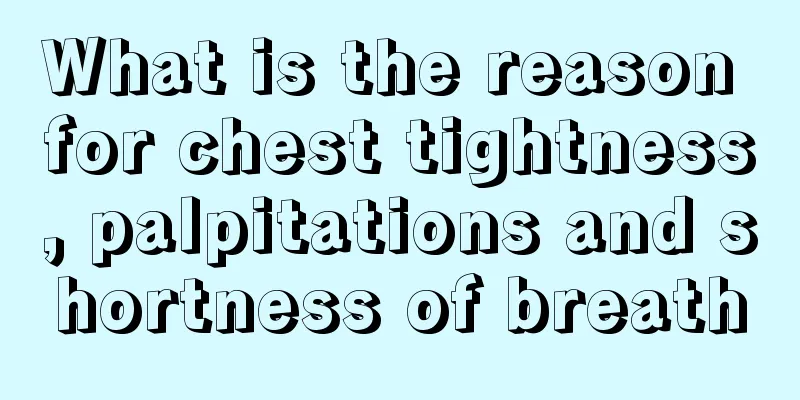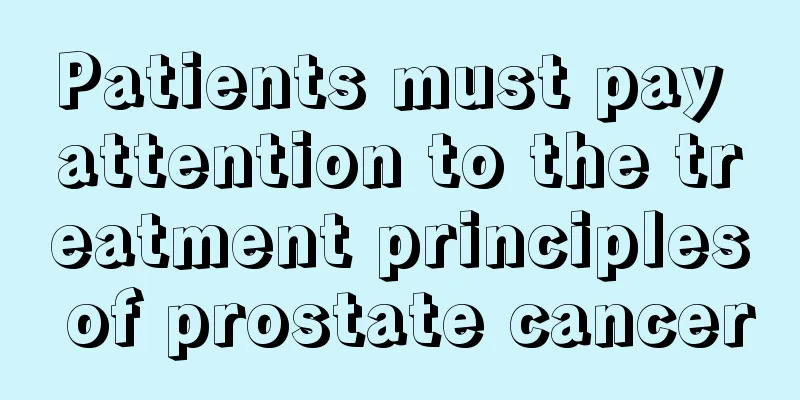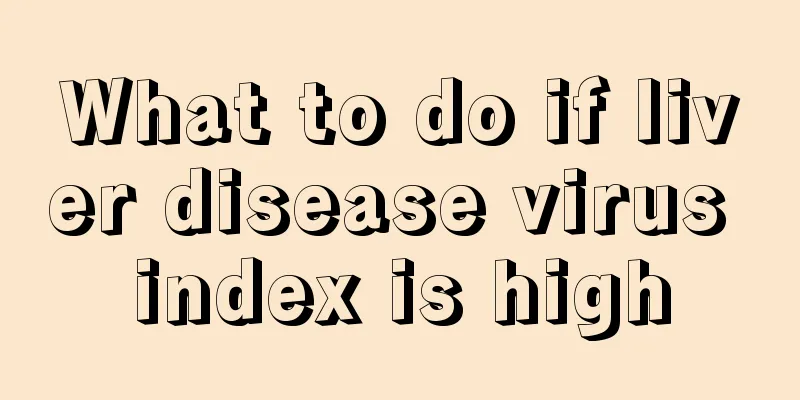What is the reason for chest tightness, palpitations and shortness of breath

|
Don’t think that chest tightness and palpitations are nothing to be taken seriously. Sometimes these symptoms are the precursors to certain diseases. Myocarditis, cardiovascular disease, anemia and other diseases all have symptoms of chest tightness, palpitations and shortness of breath, so everyone should pay more attention to their physical condition. 1. Active myocarditis: There may be symptoms such as palpitations, heart palpitations, tachycardia, arrhythmia, chest tightness and shortness of breath, which should be examined and excluded. 2. Hypoglycemia: The most common is idiopathic functional hypoglycemia, which is more common in middle-aged women. It is characterized by no clear cause of the disease. Fasting blood sugar is usually normal. It generally does not cause hypoglycemia when fasting. The attack time is usually 2 to 4 hours after a meal (11 am or 3 pm). The symptoms are mild and loss of consciousness is rare. The early symptoms of hypoglycemia are palpitations, fatigue, hunger, hand tremors, cold sweats, pale complexion, cold limbs, or nausea and vomiting; they are mainly caused by overexcitement of the sympathetic nerves and excessive adrenaline: Hypoglycemia is paroxysmal, not frequent, and symptoms of chest tightness and shortness of breath rarely occur. 3. Anemia: Anemia can cause symptoms such as dizziness, palpitations, and tachycardia, but generally does not cause symptoms of chest tightness. 4. Hypotension: It also mainly causes dizziness symptoms, but blood pressure around 60/90 generally does not cause changes in blood supply. 5. Cardiovascular dysfunction: It is very common in clinical practice, and the symptoms are: patients feel chest tightness, shortness of breath, subjective feeling of insufficient air, difficulty breathing, often sighing, and feel comfortable after taking a deep breath or a long breath; sometimes it is often accompanied by palpitations, tachycardia, stabbing pain in the precordial area, as well as fatigue, dizziness, confusion, insomnia and other neurological symptoms. Symptoms are often triggered or aggravated by mental factors. It may also be accompanied by chronic pharyngitis, such as a foreign body sensation in the throat. |
<<: Can color blindness and color weakness be corrected?
>>: What is the cause of thin earwax and what is it related to?
Recommend
The dangers of laser armpit hair removal
Sweat hair is an integral part of the human body....
How to use hair dye
Everyone loves beauty. In today's society, pe...
Can I drink milk on an empty stomach and what should I pay attention to
I don’t know if we have ever drunk milk on an emp...
What are the dietary precautions for liver cancer? Seven dietary precautions for liver cancer
Primary liver cancer (hereinafter referred to as ...
What are the taboos of decocting Chinese medicine
As people in modern society are becoming more and...
Is ALT 78 considered high?
Alanine transaminase 78 is a relatively high type...
Will the tumor disappear completely after radiotherapy for nasopharyngeal carcinoma?
Will the tumor disappear completely after radioth...
Why is my waist sore?
After a tiring day, many people will experience b...
What to eat for a broken bone to grow callus quickly
After a fracture, it is best to eat more foods th...
How to scientifically treat recurrence of bile duct cancer after surgery
With the rapid development of medicine, new break...
Can I eat bonito if I have constipation
Bonito flakes is a cold-water fish and is usually...
How to wash away stubborn oil stains
Children nowadays are very playful and easily get...
Does freezing point hair removal have side effects? The truth is this
The beginning of spring has passed, and summer is...
Common symptoms of gallbladder cancer
Gallbladder cancer is a relatively common maligna...
How long can you live with peritoneal metastasis of gastric cancer
If gastric cancer has already metastasized, it me...









